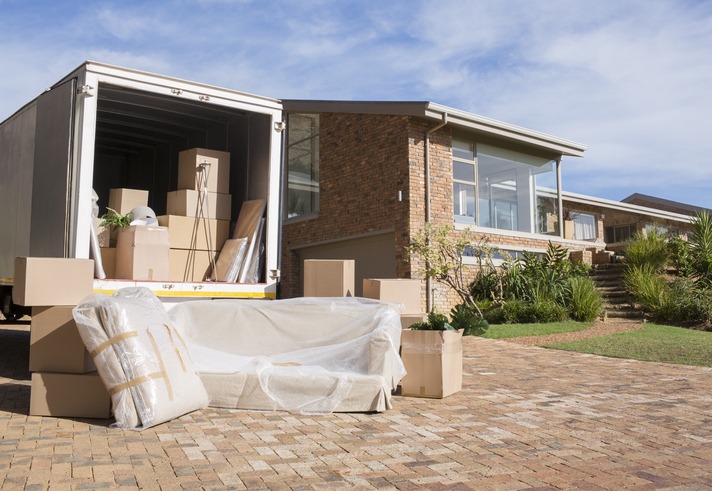Statistics and reports surrounding moving-related stress vary. Some studies have shown evidence that people find moving home the most stressful thing that can happen. Even in studies where moving doesn’t top the poll, it always places high as a cause of anxiety and worry.
2020 saw the least amount of house moves since records were first kept. This was due mostly to the pandemic. However, in 2021, 26% of all house moves were made because of Covid safety concerns. Not only were people having to worry about moving home, but the pandemic was creating extra stress.
Now though, things are largely as they were pre-2020. Yet, the stress of moving remains and affects people in many ways.
How can you make a home move less worrying?
When individuals and families move home, tension can build up, and stress starts to appear in a number of ways. Many people will find their sleep patterns are hampered as they think about the upcoming move. Others can become physically ill.
There are now many home move advisors who provide services that encompass the whole moving process. These service providers advise on marketing, real estate agents, attorneys, and everything else up to the moment you move into your new home.
Advisors such as Homemove takes the stress out of moving, or tries to, by guiding their customers through the move from start to finish. The results from 2 studies showed that 47% to 57% of home movers suffered increased stress during the move. So, using advisors for guidance may suit some people.
Yet, there are other steps you can take to remove some of the pressure you feel when moving home.
Make sure you set a realistic budget
About 40% of people moving home put money at the top of their worries. It can be expensive to uproot and move home, especially if it is across several states, or even overseas.
Moving across state lines can cost in the region of $4,500. Even a local move will cost over $1,200 on average. You should create a moving plan and include a budget. Creating a moving plan will help you to understand where you need to budget for.
Keep some extra money for unexpected costs. These will or could include your vehicle breaking down on the move, gas, takeout food and refreshments, and childcare.
Start all your tasks as early on as possible
In a study of 18 to 24-year-olds who had experienced home moves, 25% of respondents said they didn’t want to go through another one. Yet, one way to ease the stress of moving home is simply to start on your checklist early on.
Packing and labeling
One of the most stressful aspects of moving home is packing. A home full of belongings collected over years can seem a daunting prospect to tackle, but the earlier you do it, the more you can break it down room by room. Don’t forget to label too. At a minimum include what room boxes are going to be placed in, your last name, and mark fragile where necessary on each label.
Taking less with you will make your move easier, and there are plenty of tips for decluttering before a move. Garage sales, donations, and junk removal are but three ways to declutter.
Declutter and use junk removal
Before you get into the packing, you might want to have a real clear-out. This will make packing much easier. It can be hard to part with some belongings, but hoarding will make your move much harder.
If you can, attempt to involve your children too. There are even more factors when moving with kids, and they will have their concerns too. Organizing a sale together can be fun, and they can sell some of their unused toys.
47% of all the children’s books and toys in the world are in the US. A house move is a perfect opportunity to clear some of these out and spend time with your child too. Plus, they can make some money for their piggy bank.
Other tasks you can get onto remove include:
- Setting up mail forwarding
- Contacting utility companies
- Canceling services
- Booking removal company
- Hiring storage facilities
- Calling a junk removal service
Another way to restore peace of mind during moving is to get extra insurance coverage.
Take out removals insurance
There are different forms of cover for moving home. They all serve to provide some financial protection for your furnishings and other effects. But, they don’t all give the same level of cover.
Released-value protection is the basic cover that your removal company will offer. You don’t pay anything for it, but the cover is minimal and is based on weight. For every 1 lb of property damaged, you can expect to receive 60 cents.
Yet, there are third-party removal policies you can take out. You can expect to pay 1% – 2% of the estimated value of your belongings to obtain full value cover.
Summary
This article provides you with just a few ways to try and have a less stressful house move. Putting together a few essentials that you need for the first few days will also help; clothes, toiletries, medicines, cash for takeouts, and basic tools in a bag will make things go smoother.
You will no doubt still have concerns and worries about moving, but if you follow some of these steps, your move should be a little bit less fraught.

